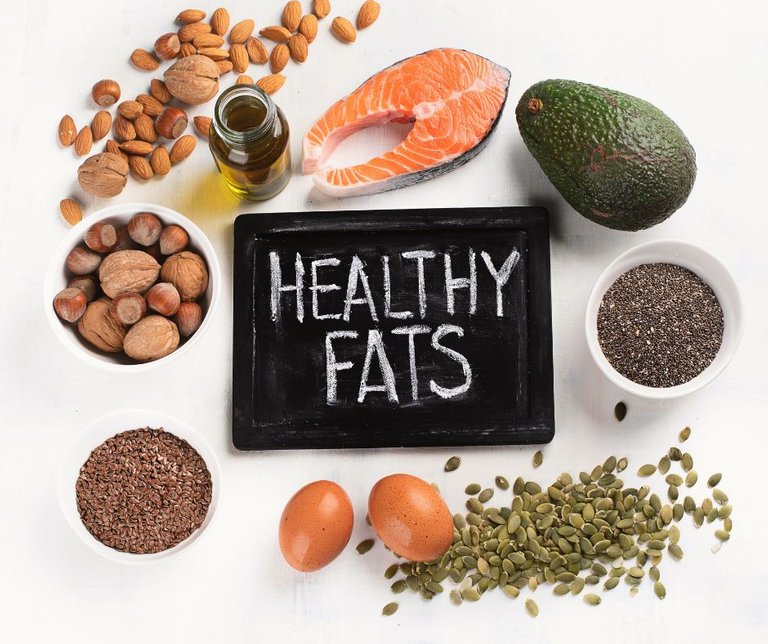What are Macronutrients and why you NEED them

What are Macronutrients and why you NEED them
Macronutrients is a common word you will hear and when it comes to maintaining a healthy diet, it's essential to understand the significance of macronutrients. Let's take a look at what are macronutrients and why you NEED them.
Macronutrients are the major components of our diet that provide energy and support various bodily functions. By incorporating the right balance of macronutrients, we can fuel our bodies optimally and promote overall well-being.
Macronutrients are the three essential components of our diet which consist of carbohydrates, proteins, and fats. They are called "macro" because our bodies require them in large quantities compared to other forms of nutrients such as vitamins and minerals which are referred to as micronutrients. Let's dive deeper into each macronutrient and understand its role.

Carbohydrates
Carbohydrates are the body's primary source of energy and are present in foods such as grains, fruits, vegetables and sugar or foods with sugar. Carbohydrates provide 4 calories per gram. There are a few types of carbohydrates which consist of sugar and starches also known as complex and simple carbohydrates.
Complex Carbohydrates are often found in whole grains, vegetables, and legumes, complex carbohydrates are rich in fiber and take longer to digest, providing sustained energy. Simple Carbohydrates are found in sugar, honey, and processed foods, simple carbohydrates are digested quickly and provide a rapid but short-lived energy boost.
While no official total carbohydrates amount has been set. It is commonly agreed that carbohydrates should make up around 45-65% of your total daily calorie intake based on your metabolic rate. Focus on consuming complex carbohydrates for sustained energy and prioritize whole foods over processed options.

Protein
Protein is one of the most commonly promoted macronutrients in health and fitness circles and for good reason.
Proteins are the building blocks of our body and are essential for growth, repair, and maintenance of tissues. They play a crucial role in the formation of enzymes, hormones, and antibodies. Protein-rich foods include meat, poultry, fish, dairy products, legumes, nuts, and seeds.
The recommended protein intake varies depending on factors such as age, sex, activity level, and overall health. Generally, it is suggested that protein should account for around 10-35% of your daily calorie intake.
Person Serve
Babies 0-6 months10g/day
Babies 7-12 months14g/day
Children 1-3 years14g/day
Children 4-8 years20g/day
Girls and boys aged 9-13 years35-40g/day
Girls aged 14-18 years45g/day
Boys aged 14-18 years65g/day
Pregnant women60g/day
Breastfeeding women67g/day
Women aged 19-70 years46g/day
Men aged 19-70 years64g/day
Women aged 70+57g/day
Men aged 70+81g/day
Source: NHMRC
Aim for a variety of protein sources to ensure a complete amino acid profile.

Fats
Here's one that shocks many, fats are an essential part of a healthy diet. They provide energy, help absorb fat-soluble vitamins, insulate our organs, and regulate body temperature.
Fats come in two different types saturated fats which are found in animal products and some plant-based oils. Saturated fats should be consumed in moderation as they can increase cholesterol levels when consumed in excess.
The other type is unsaturated fats which are found in nuts, seeds, avocados, and oils like olive and canola oil. Unsaturated fats are considered healthy fats. Fats are further categorised into monounsaturated and polyunsaturated fats, both of which are beneficial for heart health and are the best choice for a healthy diet.
Focus on consuming mostly unsaturated fats while limiting saturated and trans fats, which are commonly found in processed and fried foods.
Macronutrients provide the fuel our bodies need to carry out everyday activities, exercise, and maintain bodily functions. By incorporating a balance of macronutrients, we ensure that our bodies receive an adequate supply of essential vitamins, minerals, and other micronutrients.
Different macronutrients affect our feeling of fullness and satisfaction after a meal. A balanced combination of carbohydrates, proteins, and fats helps regulate appetite and prevents overeating.
Adequate protein intake is crucial for building and preserving lean muscle mass, while carbohydrates and fats provide the energy required for exercise and physical performance and to build lean muscle mass.
If you liked today's article please SUBSCRIBE and don't forget to bookmark our Online Store and watch as we build one of Australia's best health brands.
images sourced from Canva Pro Subscription.
https://leofinance.io/threads/melbourneswest/re-leothreads-2kbcbncxw
The rewards earned on this comment will go directly to the people ( melbourneswest ) sharing the post on LeoThreads,LikeTu,dBuzz.